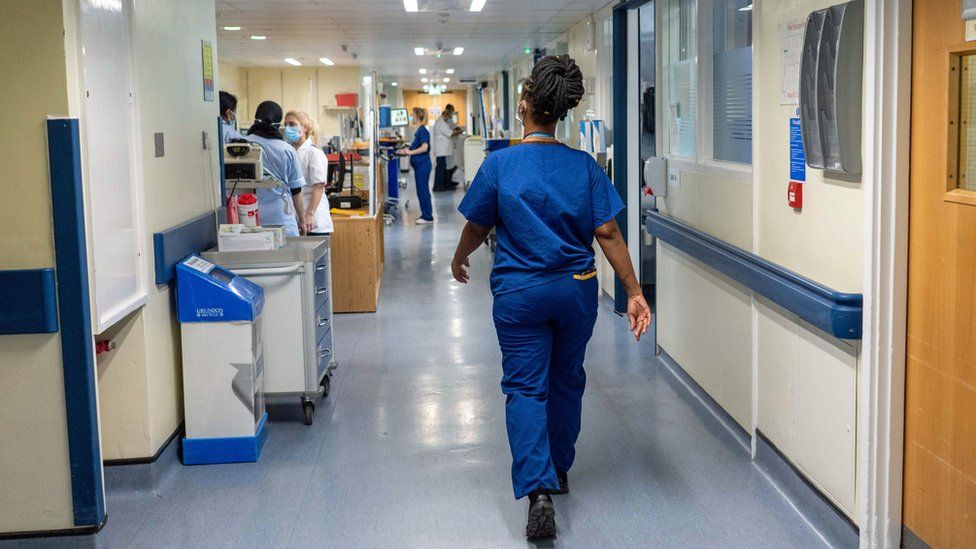ARTICLE AD BOX
 Image source, PA Media
Image source, PA Media
By Nick Triggle & Oliver Slow
BBC News
Union leaders have agreed nurses can be called in during Sunday's strike to provide a minimal level of staffing in intensive care and for trauma services.
A walkout by Royal College of Nursing (RCN) members will start at 20:00 BST and run until the end of Monday.
NHS England said "positive discussions" with the RCN had resulted in agreements to ensure staff would provide cover.
The government has said the escalating strike action "risks patient safety".
Sunday's strike is the largest industrial action so far, NHS England said, warning patients to expect "disruptions and delays to services over the strike period".
However, it said discussions over the weekend had secured "a number of national agreements" to ensure staff could provide care "to protect life and limb services".
These will cover intensive care units, including for neonatal and paediatric care, as well as major trauma and resuscitation units.
"These mitigations do not represent a return to standard staffing," said Dame Ruth May, chief nursing officer for England. "The industrial action will still have a very significant impact on services during the strike period and patients can expect to see longer waits for care."
An RCN spokesperson told the BBC that a "national agreement was reached on raising staffing levels in some key areas to preserve life and limb", adding that this strike would be "more intense" than previous ones.
Matthew Taylor, chief executive of the NHS Confederation, said the granting of exemptions was "progress".
The strike was called earlier this month after RCN members rejected a government offer to nurses in England of a 5% pay rise for 2023-24 and a one-off payment of at least £1,655 to top up last year's salary, depending on staff grade.
RCN leadership had recommended members accept the offer but it was rejected by 54% to 46%.
During nursing strikes earlier this year, in January and February, wider national exemptions were in place, meaning nursing cover was maintained in other critical areas.
Health Secretary Steve Barclay said Sunday's escalating strike action "risks patient safety".
"These strikes will put more pressure on the NHS and will be incredibly disruptive for patients," he said.
The industrial action comes ahead of a crucial meeting between unions, ministers and NHS bosses on Tuesday.

 2 years ago
52
2 years ago
52








 English (US) ·
English (US) ·